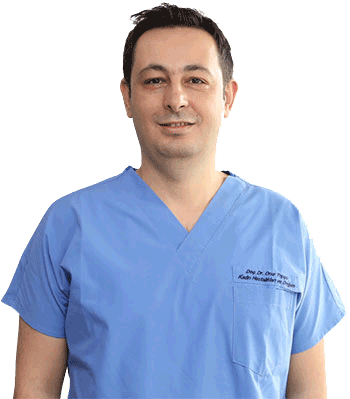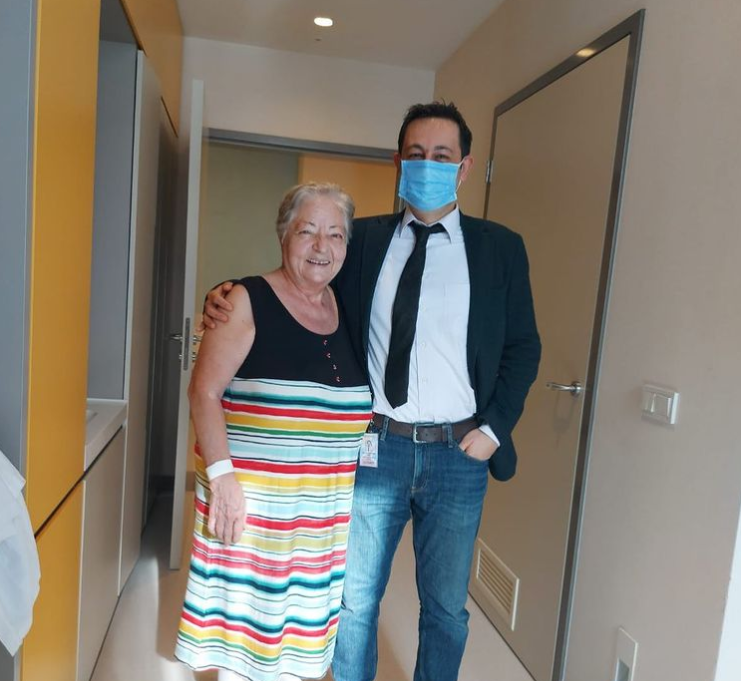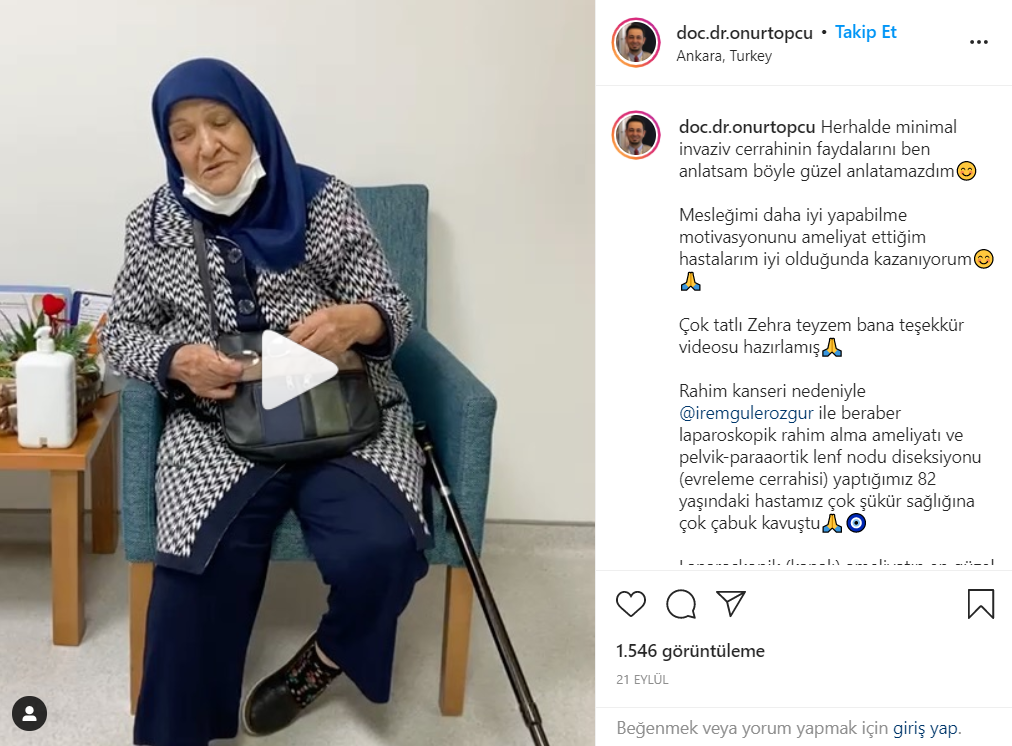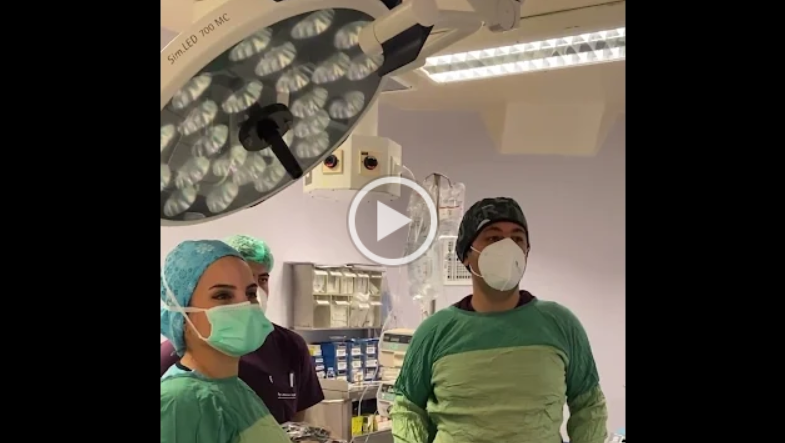
Prof. Dr. Onur Topçu
Gynecology and Obstetrics Specialist
The information provided below about medical conditions is not for advertising purposes. These are articles aimed at informing and promoting patients. If you think you may have one of the diseases listed below, we strongly recommend that you seek medical advice and treatment from specialized health professionals.
After completing her residency in Obstetrics and Gynecology, as a physician specializing in Closed (Laparoscopic) Surgery of Female Genital System Diseases, I have been involved in many social and scientific meetings for years to raise awareness of these diseases. I also perform surgeries for women suffering from endometrial (lining of the uterus) cancer so that they can overcome cancer.
Closed surgery (laparoscopic surgery) is now the gold standard treatment for women with endometrial cancer. In this surgery, I perform cancer surgery without making large incisions in the abdomen. With 20 years of experience, I see my endometrial cancer patients in my office, plan their treatment and perform their surgeries in the hospitals I have an agreement with. In the following informative article, I would like to talk briefly about the causes, symptoms, diagnosis and treatment of endometrial cancer.
You can contact us by clicking here to create your appointment via WhatsApp.
You can read my informative article on uterine cancer below.
What is Uterine Cancer (Endometrium Cancer)?
Endometrium cancer is the most common genital cancer in women. Endometrium cancer is one of the cancers that can be diagnosed without delay because it causes bleeding in the uterus at an early stage. Since endometrial cancer is often diagnosed earlier than ovarian cancer, the prognosis is relatively good.
Uterine cancer (cancer of the lining of the uterus), which is one of the gynecologic cancer types, is also known as endometrial cancer. Endometrium cancer occurs when the lining of the uterus becomes cancerous. This cancer of the uterus, which usually consists of secretory cells of the endometrium, is also called “endometrial adenocarcinoma”. Uterine cancer, which usually occurs after menopause, is a type of cancer that is most common in women aged 50 to 60, but can also occur at an earlier age.
What are the causes of cancer of the lining of the uterus (endometrium)?
Although not the only cause, women with certain risk factors are more likely to develop uterine cancer. I have summarized these risk factors below.
Uterine Cancer (Endometrium) Risk Factors (Risk Factors Increasing Uterine Cancer)
- Menstruation at an early age and cessation of menstruation even at a late age
- Having obesity, which increases the amount of estrogen
- The hormone progesterone, which protects the endometrium, increases during pregnancy. Therefore, one of the conditions that predispose to intrauterine cancer is never having given birth.
- Some medicines used in the treatment of breast cancer
- Taking estrogen therapy
- Consuming animal fats
- Having diabetes and therefore severe sugar spikes
- Having ovarian diseases
- Pelvic radiation therapy
- Genetic predisposition
How is Uterine Cancer (Endometrium Cancer) Detected?
Uterine cancer is a disease that usually presents early. The most common symptom is vaginal bleeding. Vaginal bleeding, especially during menopause, should be carefully examined. Usually, women go to the doctor and receive a diagnosis when symptoms start. Therefore, one should monitor oneself and consult a gynecologist, especially in the postmenopausal period.
Smear collection is a screening method for cervical cancer, but not for endometrial cancer. There is no screening test for endometrial cancer. What our women need to do is not to neglect their annual gynecological controls and to be examined by a gynecologist and obstetrician if there is bleeding in the postmenopausal period or if there are abnormalities in menstrual bleeding, intermittent bleeding, etc. between the ages of 40-50.
Symptoms and Signs of Endometrium Cancer
What are the Symptoms of Endometrium (Uterine) Cancer?
- It is unusual for menopausal women to experience “bleeding”. For this reason, it is extremely important for all women who have entered menopause to be aware of abnormal bleeding in order to recognize endometrial cancer at an early stage.
- Weight loss
- Pelvic pain
- Discharges of abnormal consistency
In the presence of symptoms that can be characterized as abnormal, it is absolutely necessary to investigate whether the underlying problems are endometrial cancer or endometrial hyperplasia. The endometrial tissue sample is examined under a microscope and other diagnostic tests are also used.
How is Endometrium (Uterine) Cancer Diagnosed?
Endometrial Biopsy
It is the most important diagnostic procedure that should be performed as a priority in all women with uterine cancer. This can be done under office conditions. General anesthesia is rarely needed during the procedure. Most endometrial biopsy procedures can be performed comfortably under local anesthesia. The procedure time is approximately 1-2 minutes.
During the procedure, a thin elastic tube is inserted into the uterus and tissue sampling is performed using a vacuum technique.
Dilation and Curettage (D&C)
If the biopsy is not sufficient to clearly diagnose cancer, dilatation and curettage is performed. The cervix is dilated and intrauterine tissue is removed with special instruments. General anesthesia is needed for this procedure. This procedure is rarely needed.
Hysteroscopy allows you to look inside the uterus. By filling the uterus with a saline-like solution, the doctor tries to understand what is causing the abnormal bleeding and takes a biopsy if necessary. The advantage of hysteroscopy over other procedures is that it allows you to see the lesion in the uterus and take a biopsy directly from the lesion.
Other Test Methods
Although these test methods do not help in direct diagnosis, they can provide information about the prevalence of uterine cancer.
- Ultrasonography
An ultrasound device inserted into the vagina can be used to visualize the uterus and make a diagnosis.
- Computed tomography, MRI, PET (Positron Emission Tomography) scan.
- Chest radiography
- Intra venous pyelogram: Examination of the kidney and urinary tract.
- Complete blood count.
- Ca 125 in blood: Used to monitor treatment efficacy after treatment.
Staging of Uterine Cancer
The stages of uterine cancer are divided into 4.
- In endometrial cancer, if the disease has only reached the corpus, the body of the uterus, it is stage I,
- Stage II if it has spread to the cervix
- III if it has spread outside the uterus but has spread to organs adjacent to the uterus, glands around large vessels
- To more distant organs, e.g. lungs, etc. stage IV can be mentioned if it has spread.
How is Endometrium (Uterine) Cancer Treated?
The treatment of endometrial cancer should be managed strictly by experienced gynecologists. The main and first line of treatment for endometrial cancer is usually surgery. But the choice of treatment will depend on the stage of the cancer. Whether chemotherapy or radiotherapy should be applied after uterine cancer surgery depends on the pathology report, the condition of the lymph nodes and the type of tumor.
The gold standard in the surgical treatment of uterine cancer is laparoscopic (closed) surgery. Closed surgery requires a high degree of experience. One of the biggest chances of the patients we treat is that they can even undergo surgical treatment of uterine cancer without making large incisions in the abdomen.
After years of performing closed and open surgeries of genital female cancers at Zekai Tahir Burak Training and Research Hospital, Turkey’s largest obstetrics and gynecology hospital, in November 2020 in Ankara I see my patients in my own clinic and perform my surgeries in private hospitals that I have an agreement with.
For more detailed information, please call 0 533 049 66 87.
Stay healthy.
Assoc. Dr. H. Onur Topçu
Gynecology & Obstetrics – IVF and Advanced Gynecologic Endoscopy Specialist

PATIENT COMMENTS
Onur teacher was very supportive and encouraging at every stage from the very beginning of the process to the postoperative period. He informed us in the best and correct way by explaining all the details of the process in a complete and clear way. I would like to thank Onur Hoca very much and definitely recommend him to those who are looking for a doctor in this field.
Arz*** A***
I came from Ağrı for my teacher Onur. May Allah be pleased with him. After the cancer surgery, I left the hospital a day later. I’m very well now. Onur hodja does my follow-ups.
Ay…e Di…ük
He is very respectful, knowledgeable and listens to the end. Onur is number one in closed cancer surgeries, I got rid of this disease with tiny incisions, thank God.
Fe…an. Ka….ak
When I found out I had uterine cancer, the world fell apart. Onur teacher was recommended by a friend of mine. Onur teacher gave me so much confidence that I even forgot I had cancer. He performed my cancer surgery in a closed way, and I did not need to undergo radiation therapy or medication afterwards. Thank God I am very well now. I especially recommend Onur Hoca to patients with uterine cancer. He’s a great doctor.
Ze….a Yu….ven
He is an excellent person to whom I entrusted myself not only as a physician but also with his large heart full of love. I would like to thank my esteemed doctor for his care and love during and after the operation.
L.G.



